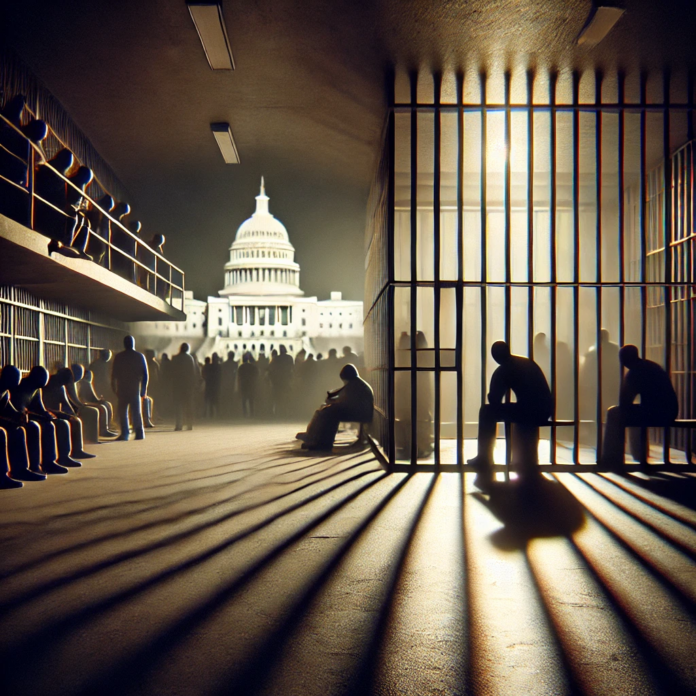As we approach January 6th, 2025, it’s essential to reflect on the events that transpired four years ago at the U.S. Capitol. This reflection does not serve to advocate for anyone who engaged in violence that day, but to address the broader concerns of justice and fairness. Many individuals present believed they were standing up for electoral integrity, convinced that the 2020 election had been unjustly decided—a sentiment echoed by then-President Donald J. Trump.
In the aftermath, the Biden administration, under Attorney General Merrick Garland’s leadership, pursued legal actions against numerous participants. Some received substantial sentences, including Enrique Tarrio, the former national chairman of the Proud Boys, who was sentenced to 22 years in prison despite not being physically present at the Capitol on January 6th.
This has led to widespread concerns about the potential politicization of the Justice Department and the fairness of these prosecutions.
President-elect Trump has referred to these individuals as “political prisoners” and has pledged to pardon many of them upon taking office. He acknowledges that, while there were individuals who engaged in unlawful activities, a significant number were peaceful protesters who felt compelled to act based on their convictions. Notably, there are accounts suggesting that some protesters were permitted entry by Capitol security personnel, further complicating the narrative.
Additionally, questions have been raised about the presence of undercover FBI informants during the events of January 6th. A December 2024 report by the Department of Justice’s Office of the Inspector General found that 26 FBI informants were in Washington, D.C., on that day, with 17 entering restricted areas, including the Capitol. However, the report concluded that none were authorized to participate in illegal activities or encourage others to do so.
The lack of transparency regarding the role and activities of these informants has fueled speculation and distrust. The government’s reluctance to disclose full details only exacerbates concerns about potential entrapment or undue influence on the day’s events.
Adding to the controversy is President Biden’s recent pardon of his son, Hunter Biden, for offenses committed between January 1, 2014, and December 1, 2024. This sweeping pardon, which covers charges including tax evasion and illegal gun possession, has been criticized as a misuse of presidential power, especially given Biden’s previous assurances that he would not interfere in his son’s legal matters.
Critics argue that this act of clemency for his own son, juxtaposed with the harsh sentences imposed on January 6th participants, highlights a double standard in the application of justice. The perception of unequal treatment under the law undermines public trust in our legal institutions and raises questions about the impartiality of those in power.
As January 20th approaches, there is a growing anticipation for President-elect Trump’s inauguration and his commitment to address these issues. His promise to pardon those he views as unjustly prosecuted offers hope to many who feel that justice has been weaponized against them.
In moving forward, it’s imperative that we strive for a justice system that is fair, transparent, and free from political bias. Acknowledging past mistakes and ensuring accountability will be crucial steps toward national healing and unity. Let us ensure that justice is not only served but that it remains untarnished by hypocrisy or partisanship.
Disclaimer: Protected Political Opinion
This article is a political opinion piece intended to express personal perspectives and commentary on matters of public interest. It is published in accordance with the rights guaranteed by the First Amendment of the United States Constitution, which protects freedom of speech and freedom of the press.
The views expressed herein are based on publicly available information and are not intended to incite violence, advocate for illegal activities, or promote any form of hate speech. Furthermore, this publication acknowledges the seriousness of all legal proceedings and respects the rule of law.
This article is not a call to action but an exercise in free expression to foster dialogue and critical discussion about significant national events. Any references to individuals, organizations, or events are based on reported facts or public records, and all reasonable efforts have been made to ensure accuracy.
This publication disavows any unlawful conduct by any party and affirms its commitment to peaceful discourse, transparency, and the responsible exercise of constitutional rights.




